NIGERIAN ARMY MAKES ITS OWN LIGHT ARMOURED VEHICLES FOR WAR AGAINST JIHADI TERROISM
Although, Nigerian Army continue to import most of its equipment from overseas, it does manufacture some of its own
Since 1964, the Nigerian Army-run Defence Industries Corporation of Nigeria (DICON) has been making a diverse range of weapons mostly under license from foreign companies. Examples include: British-designed Mills M36M (M36) grenades; Italian-designed Beretta BM-59 rifles and Beretta M12 submachine guns; Belgian-designed FN FAL battle rifles, Browning P-35 pistols and FN-MAG general purpose machine guns; and the iconic Soviet-designed AK-47 assault rifles. The company also makes ammunitions for the small arms it is producing under licence. It makes artillery shells too.

Apart from making munitions, DICON also makes uniforms, boots, shoes, sportswear, ballistics vests, life jackets, helmets, floating jackets, mess kits and other ancillary products for all branches of the armed forces and the police force.
In 1984, DICON expanded into the civilian manufacturing realm and began production of various kinds of salts including iodized table salt. In 2020, during the COVID-19 saga, DICON produced ventilators, face shields, face masks and hand sanitizers for Nigerian consumers.
However, in recent years, the Nigerian Army has been forced to leave its comfort zone of making munitions and simple civilian products after its Air Force and Navy rivals upped their game by investing heavily in the manufacture of locally designed aerial drones and patrol ships, respectively.
Since 2011, the Nigerian Navy-owned Naval Dockyard Limited has been designing small patrol ships in its Computer Aided Engineering (CAE) Labs and fabricating them in its dry-docks. Months ago, I posted a video about this :
In September 2019, the Nigerian Army unveiled Ezugwu MRAP its first ever domestically designed Mine Resistant Ambush Protected (MRAP) vehicle for deployment in the desert plains of North-eastern Nigeria where Boko Haram, Ansaru and ISWAP terrorists lurk with 12.7 mm Dushka anti-aircraft guns, AK-47 assault rifles, improvised explosive devices (IEDs) and other landmines.
Ezugwu MRAP is armoured against small arms fire. Its hull can withstand explosions of 7 kilogrammes of TNT whilst each wheel can withstand an explosion of 12 kilogrammes of TNT .
Since 2019, several variants of the original MRAP vehicle has been manufactured. The original version was designed to carry a maximum crew of 12—the driver, the commander, two gunners and eight soldiers. That version also has two weapons turrets, which can traverse 360 degrees. Its primary armament includes a 12.7 mm anti-aircraft gun and a 7.62 mm light machine gun. Other versions of the MRAP have single weapon turrets and can each carry a maximum crew of 14 men.
All variants of Ezugwu MRAP are diesel-powered and contain a surveillance package consisting of a 360-degree telescopic long range camera and an interior flat-panel monitor for improved situational awareness. The package allows the crew inside the vehicle to monitor their environment over a radial distance of 5 kilometres.
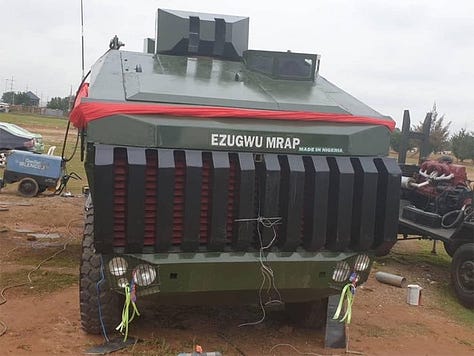
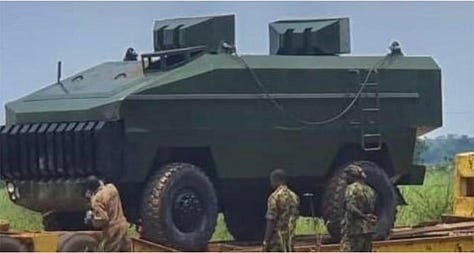
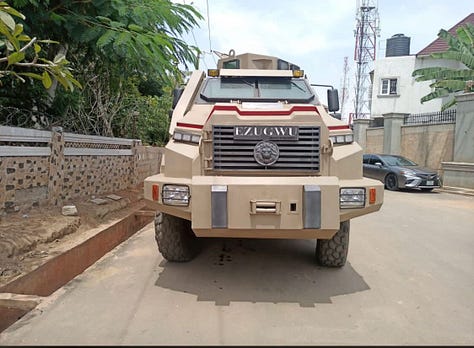
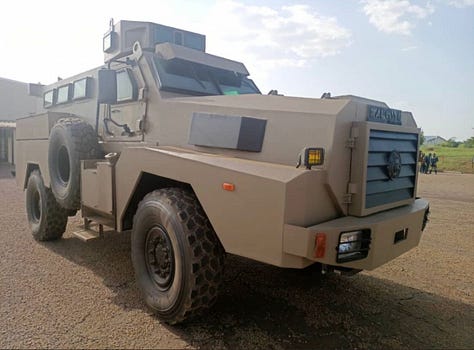
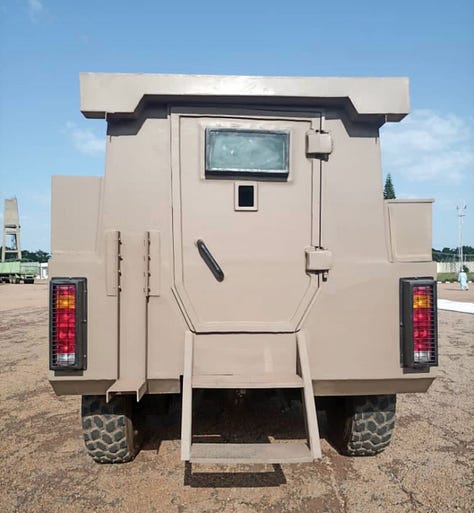
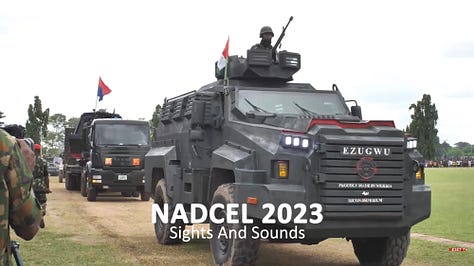
After successfully field-testing 25 units of Ezugwu MRAP in 2019, the Nigerian Army began to order hundreds of the vehicles. DICON expanded production lines in its factories to cope with the avalanche of orders.
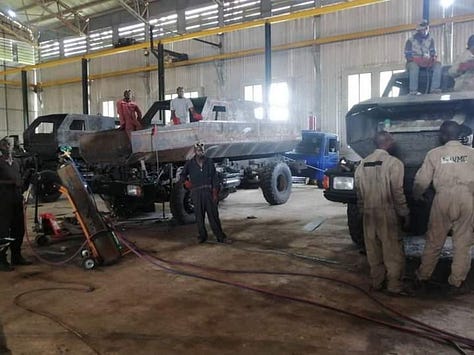
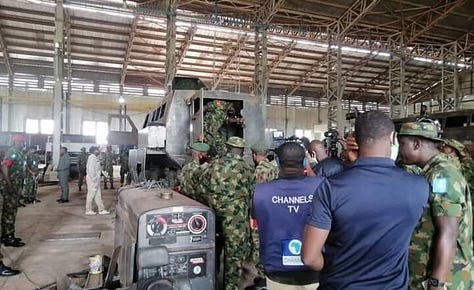
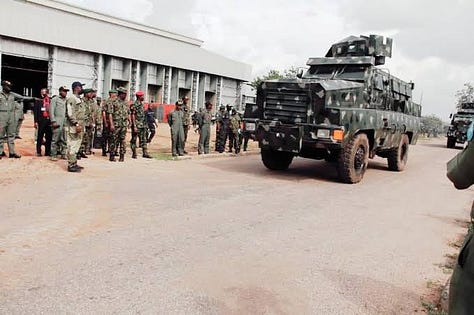
The Ezugwu MRAP is named after its designer, Major-General Victor Ezugwu who was director-general of DICON from 2018 to 2021. Unusually for a military designer, the two-star general had never been in the Corps of Army Engineers. He is a trained military historian who has always been an infantry soldier.
As a young second-lieutenant in 1990, he was part of the Nigerian-led ECOWAS intervention in Liberia. He is also a veteran of Nigeria’s military intervention in Sierra Leone in 1997. Before his appointment to DICON in 2018, he had won accolades for his overall leadership of infantry units fighting Boko Haram jihadists.
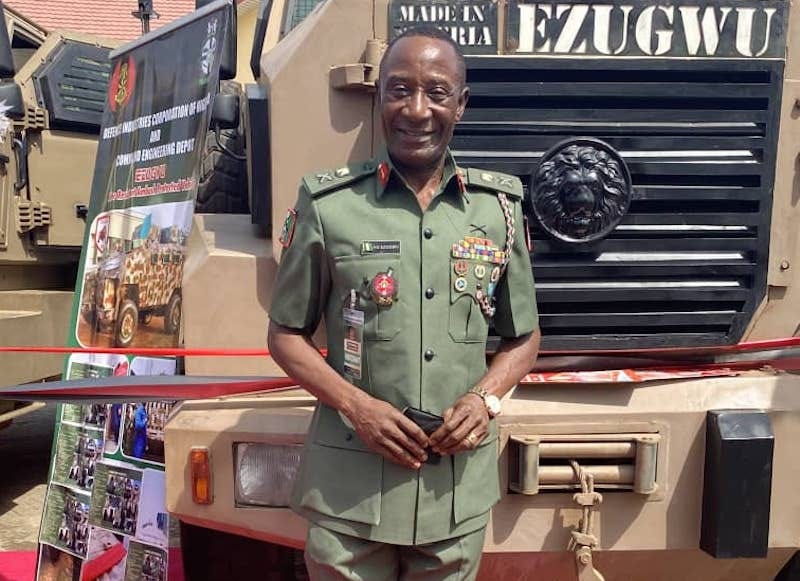
In July 2022, a journalist with the privately-owned Nigerian TV channel, TVC News, interviewed the major-general during the Nigerian Army Day celebrations in Owerri city. At the time of the interview, Victor Ezugwu had left his position as director-general of DICON and was in his new post as Commander of the Nigerian Army Infantry Corps.
In the video below, the two-star general talks about the specifications of the military vehicle that bears his name :
While still the director-general of DICON, Maj. Gen. Victor Ezugwu teamed up with the Mechanical Engineering Department of Ahmadu Bello University (ABU) and National Automotive Design and Development Council to design and build the prototype of the light infantry patrol vehicle named, TYB ROVER.
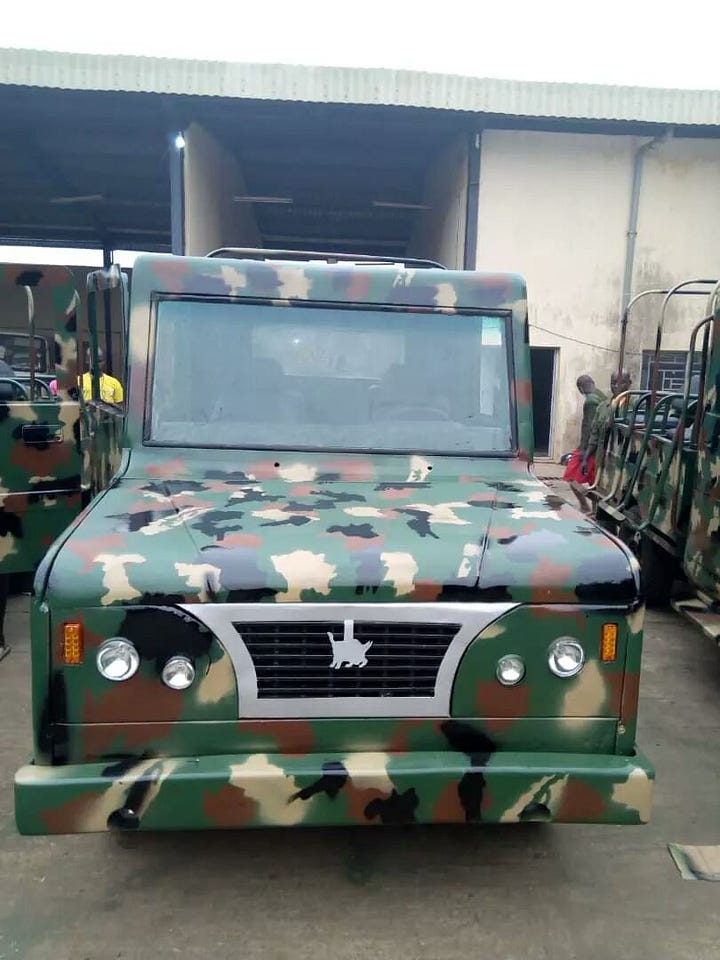
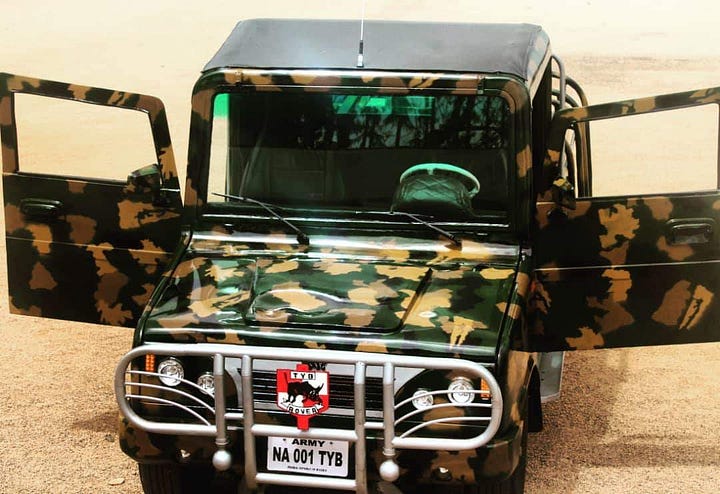
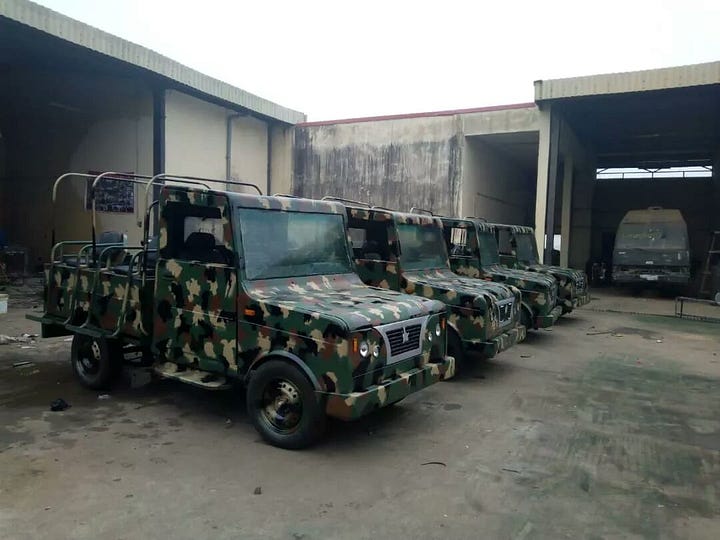
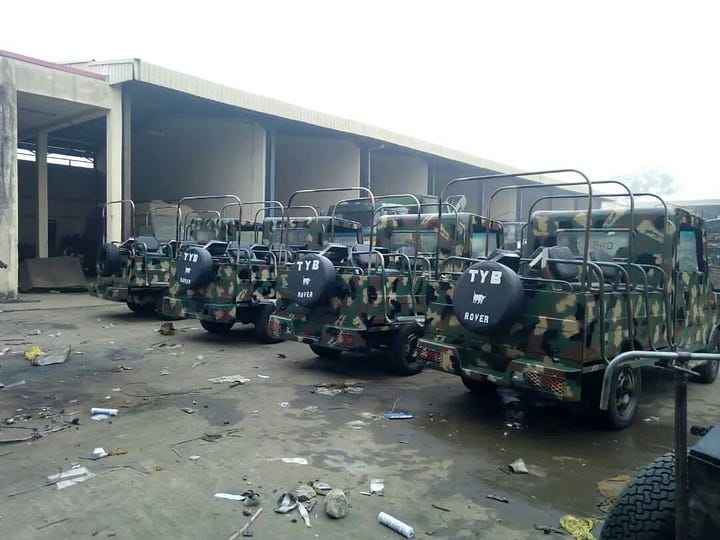

However, government-owned DICON is not the only domestic manufacturer of military vehicles in Nigeria. The Nigerian Army have also given contracts to privately-owned Nigerian companies to manufacture vehicles for them.
One of them is ProForce Nigeria Ltd run by Mr. Ade Ogundeyin who appeared in a video showing his company manufacturing Proforce Ara “Thunder” MRAP vehicles for the Nigerian Army:
Another privately-owned Nigerian company that is under contract to manufacture domestic military vehicles for the Nigerian Army is Innoson Vehicle Manufacturing (IVM) Limited, which is already a well-established domestic manufacturer of civilian vehicles— buses, luxury saloon cars, SUVs and trucks.

What makes Innoson Vehicle Manufacturing (IVM) Ltd quite unique on the continent is its vertical integration. The Nigerian motor company, established by Mr. Innocent Nwala in 2007, owns several subsidiaries that supplies components for the making the vehicle. One subsidiary produces plastic and rubber components and sells some of it to the vehicle-making parent company. The rest is sold to outside companies. The glass-manufacturing subsidiary supplies glass components to the parent company when it is not fulfilling contracts for other customers. The metal smelting subsidiary supplies metallic components and flat metal sheets to the parent company, etc, etc. A subsidiary also exists for making tyres for the vehicles.
Seventy percent of the components used by the Eastern Nigeria-based motor company to fabricate its vehicles are produced domestically. The remainder are imported from abroad.
That said, Innoson Vehicle Manufacturing (IVM) Limited does not seem to have its own in-house design team for its civilian vehicles. A lot of the SUVs, trucks and saloon cars (sedans) built by the company are based on existing Chinese designs.
A couple of months ago, I posted a video about this particular company :
Based on its reputation for mass production of civilian vehicles, Innoson Vehicle Manufacturing (IVM) Limited was asked by the Nigerian Army to make a series of Special Purpose Vehicles (SPVs) for the rough terrain of North-eastern Nigeria.
It wouldn’t be the first time that IVM Ltd had been asked to work for the military.
In 2016, the motor company was given a contract by the Nigerian Air Force to manufacture components for the braking system of its aging Dornier Alpha light attack jets, which was being used for airstrikes against Boko Haram insurgents. The required spare parts had proven hard to get from overseas as the German manufacturer, Dornier Flugzeugwerke, had ceased to exist several years earlier. The lack of spare parts had caused the Air Force to ground some of the old planes in its aircraft fleet. That was until the Nigerian motor company fabricated the elusive machine parts.
Upon successful fulfilment of the contract, Innoson Vehicle Manufacturing (IVM) was retained to produce more spare parts for older planes in the inventory of the Nigerian Air Force. IVM has since hired a research, development and production team to further improve its ability to deliver.
For its separate contract with the Nigerian Army, the motor company designed and built the IVM-G12, which has been described as “a highly mobile and tactical pick-up van with double reinforced shock absorbers that have demonstrated strength and ability to cope with military functions”.
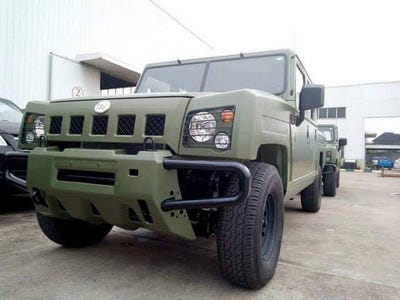
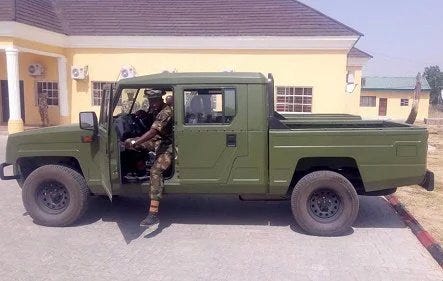
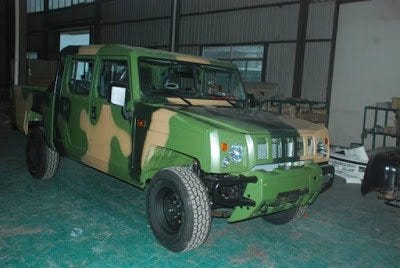
Satisfied with the work of Innoson Vehicle Manufacturing (IVM), the Nigerian Army made the company a full-time supplier of military vehicles.
The Nigerian Police Force and Federal Road Safety Corps have both contracted IVM to make vehicles for them as well:

Given the growing reputation of the motor company, the west African nation of Sierra Leone have begun buying fleets of vehicles from it, saving herself the hefty cost of importing them from Europe, North America and China.
There is no doubt that domestic production of certain kinds of military equipment, including light armoured vehicles, would continue to rise within Nigeria. However, they represent only a fraction of the total equipment used by the country’s armed forces. For reasons of quality and sophistication, Nigeria remains heavily dependent on military equipment made in USA, Russia, China, UK and other European states. Would this change in the future? Maybe, but not any time soon.
THE END
Dear reader, if you like my work and feel like making a small donation, then kindly make for my Digital Tip Jar at Buy Me A Coffee




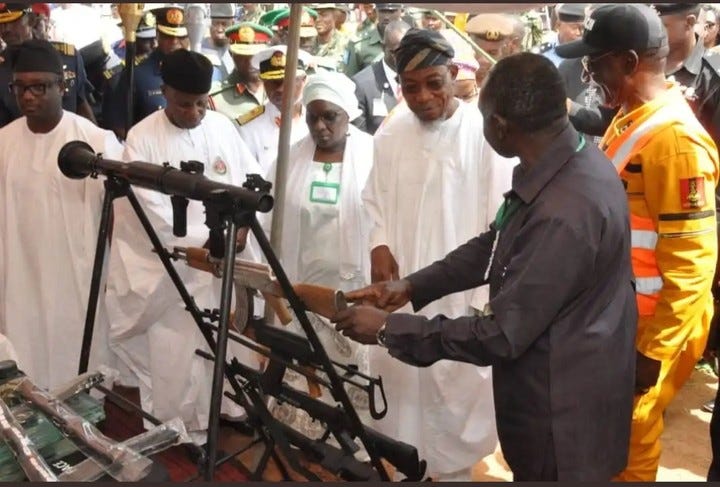

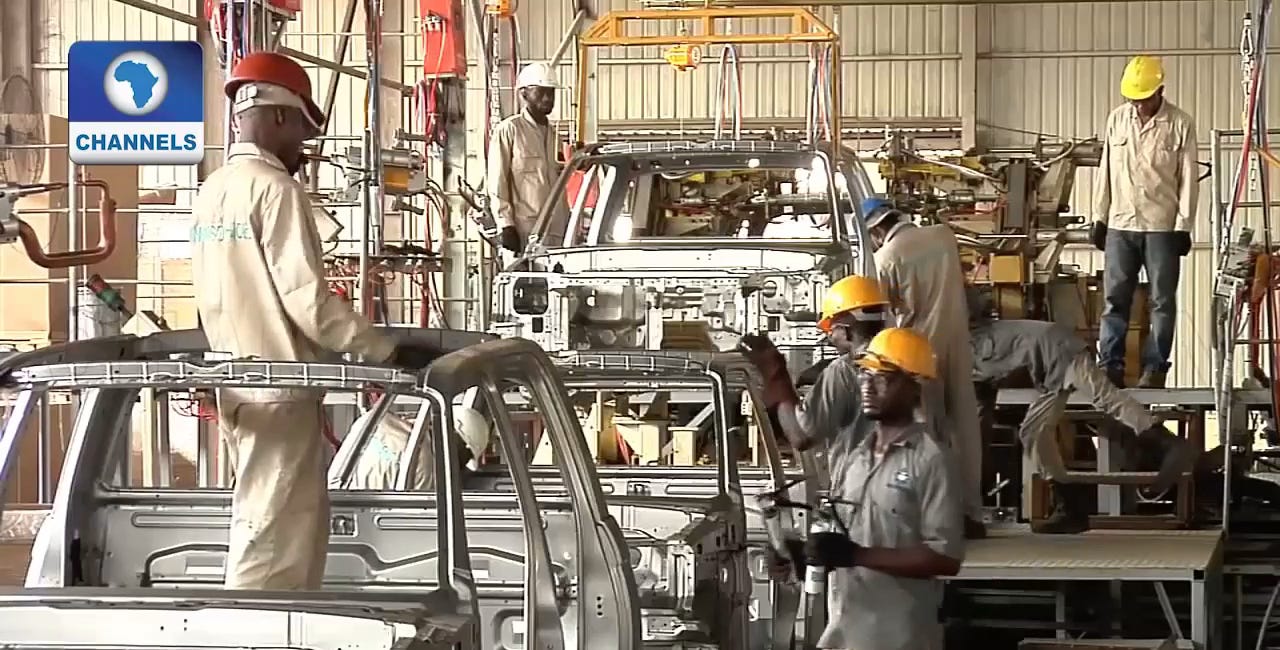
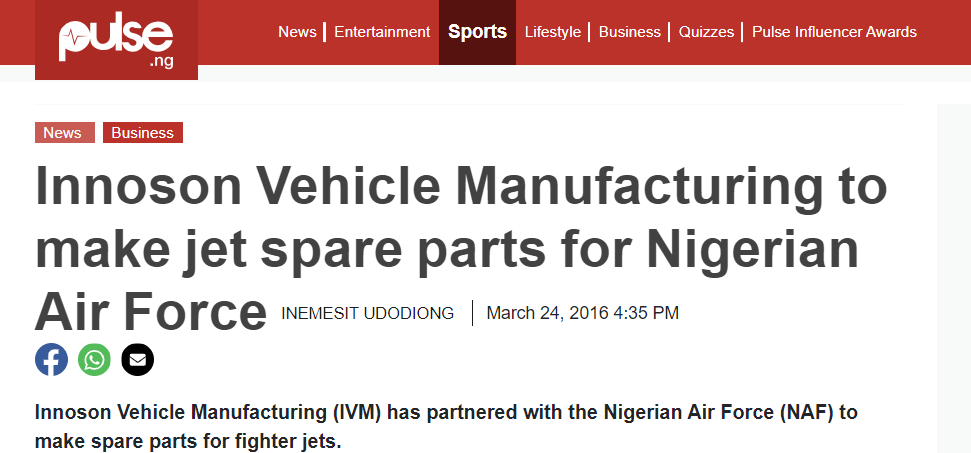

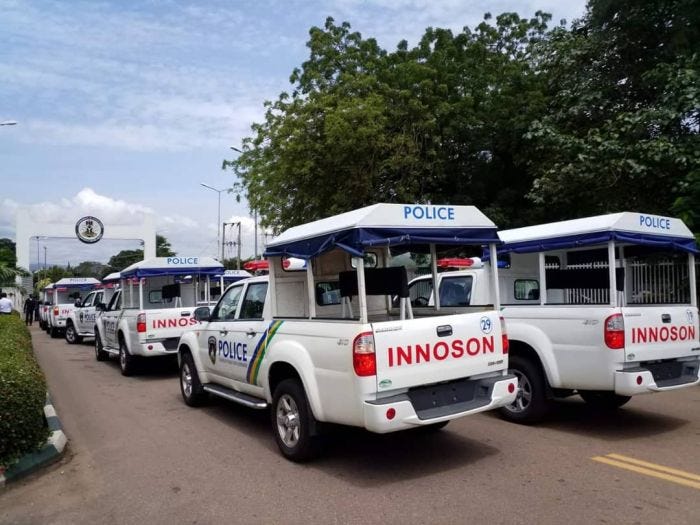

Again a very informative article.
Looking forward to the next one !